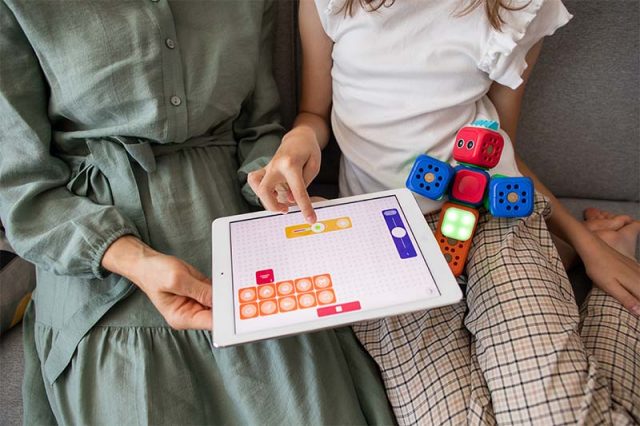Most parents and their children tend to spend the same amount of time going online or using their gadgets, according to a data from a cybersecurity firm’s poll.
Cybersecurity firm Kaspersky found in a poll that 70% of children and 82% of parents spend at least three hours on their devices daily.
Children also spend less time on their gadgets if they saw their parents doing the same thing.
Results showed that 80% of parents who spend less than two hours a day on their devices also have their children using their devices at the same rate.
Similarly, if adults use their gadgets more than two hours per day, their children will also likely emulate this habit.
The poll showed that only 19% of cases wherein children who are exposed to this example do not follow suit.
Amid these findings, most parents or 96% of them still try to set limits on their child’s digital behavior for their protection.
Ninety percent more parents have also talked with their children on digital etiquette.
The online survey of Kaspersky was conducted last September. There were 11,000 respondents from different countries including Saudi Arabia, Peru, Chile, the United Kingdom and Germany.
The full report can be accessed here.
Importance of setting a good example
Marina Titova, vice president of Consumer Product Marketing at Kaspersky, said that this data demonstrated how parents from different parts of the world still try to be better role models to their children in terms of screen-time balance.
“As we see from the data – the more hours parents spend on gadgets, the more hours kids are likely to spend on theirs. Parents want to ensure better screen-time balance for their children and their main challenge is how to achieve this,” Titova said.
“Today there are tools available that can help parents improve digital wellbeing for their kids and ensure their screen time is secure and balanced. Setting an example themselves is also a great option,” she added.
Therapists Birgitt Hölzel and Stefan Ruzas from the Munich practice Liebling + Schatz also noted that this poll showed how parents should serve reduce their own media or digital consumption for their children to emulate.
“Many parents are convinced that it is sufficient to clearly regulate their children’s media time and control the type of content they have access to. But instead of worrying about effective punishments, parents should first reduce their own media consumption,” they said.
The therapists also highlighted the importance of tangible interaction from the real world to children.
“Children benefit far more from tangible interaction with the real world than from consuming digital information. Children younger than twelve, for example, still have a long way to go before their capacity for abstraction is comparable to that of an adult. They first have to learn to feel, hear, see, smell and taste the world,” they said.










